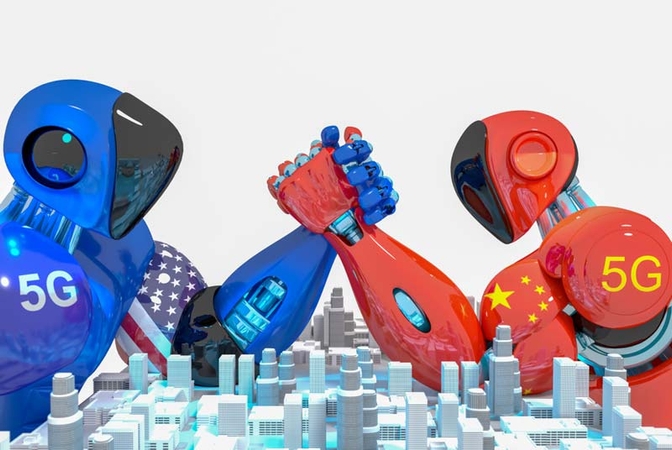Multiple Taiwanese technology companies are reportedly collaborating with Huawei Technologies Co. to construct chip plants in southern China. These collaborations have raised concerns in Taiwan, as the island grapples with China's increasing aggression. The Taiwanese companies involved include Topco Scientific Co., L&K Engineering Co., Cica-Huntek Chemical Technology Taiwan Co., and a subsidiary of United Integrated Services Co. These companies are reportedly assisting Huawei and its affiliated chipmakers in the construction and supply of materials for chip fabrication facilities. If true, this Taiwanese involvement could potentially provoke a backlash in Taiwan, particularly as the island prepares for elections next year.

The collaboration between Taiwanese companies and Huawei is noteworthy because it may assist Huawei in circumventing U.S. sanctions. The U.S. sanctions aim to prevent the export of American technology to Huawei, but they do not specifically prohibit all business relationships. However, the exact nature of these collaborations and whether they violate U.S. sanctions remains uncertain without more detailed information.
In response to these developments, Taiwan's Ministry of Economic Affairs has stated that it will investigate the relationships between the four Taiwanese firms and Huawei. The ministry also emphasized the importance of adhering to U.S. export control measures if any equipment used by the companies falls under restricted categories. While representatives from Huawei and L&K Engineering did not respond to requests for comment, Topco confirmed its subsidiary's ongoing contract with Huawei, emphasizing that it is related to environmental projects and not semiconductor equipment or material supply. Cica-Huntek Chemical Technology Taiwan Co. declined to comment.
The potential involvement of Taiwanese companies in Huawei's chip efforts raises concerns about Taiwan's defense given the strained relationship between Taipei and Beijing. The Taiwanese government will need to consider tightening controls on local firms' support for Huawei to address these concerns. Additionally, the complexity of U.S. sanctions against Huawei makes it challenging to determine whether these collaborations violate American regulations. Nevertheless, the U.S. Commerce Department has previously stated that it is investigating Huawei's reported advances in chip technology.
The Taiwanese companies' collaboration with Huawei comes at a crucial time, as Taiwan is preparing for its next presidential election. The election will likely revolve around the issue of Taiwan's relationship with China, with the ruling party advocating for maintaining political independence while the opposition favors closer ties with China as Taiwan's largest trading partner.
Overall, the involvement of Taiwanese companies in the construction of chip plants for Huawei's chip initiative is significant in terms of knowledge acquisition and support. These companies have played critical roles in supporting major industry players like Taiwan Semiconductor Manufacturing Co., contributing to the global production of advanced chips. However, the Taiwanese government faces challenges in implementing export controls on China due to the civil-military fusion program that directs industrial innovation toward military applications. The situation highlights the complexities and tensions in the tech relationship between Taiwan, China, and the United States.







